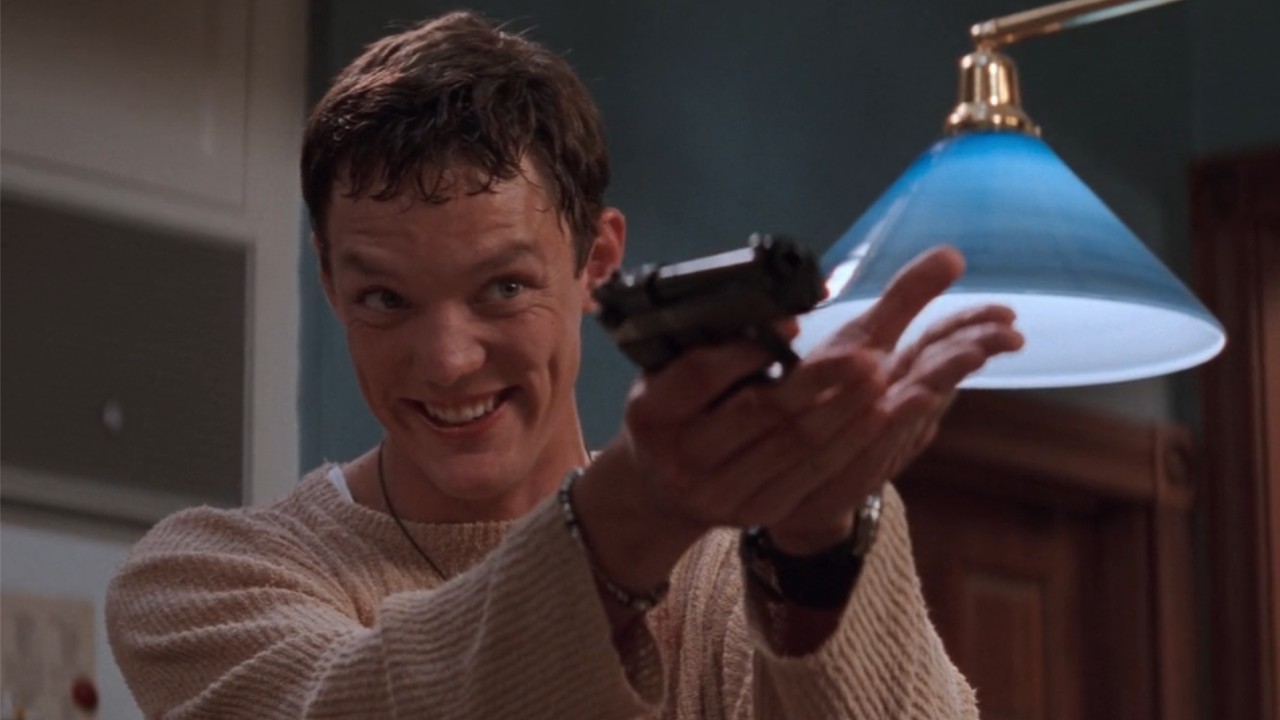There have certainly been worse movies than Amelia in the last few years. That one about the guy who gets out of a coma and finds out his girlfriend is a Playboy centerfold comes to mind. Worse movies than this biopic of pioneer aviator Amelia Earhart, certainly, but none quite so boring. Amelia Earhart lived a fascinating and exciting life. At least, I think she must have. She did a lot of really cool things in early aviation, such as being the first woman to fly across the Atlantic and the first person to fly from Hawaii to California. She was an international celebrity and promoted both women and a lot of products. She tried to fly around the world and ended up probably crashing into the ocean, or somehow not quite making it back home. That’s all exciting stuff. Unfortunately, as played by Hilary Swank, she comes across as a dead-eyed, cliché-spouting bore.
The movie ignores Earhart’s early life and picks up in 1928 when she becomes the first woman to cross the Atlantic in an airplane (piloted by a man) and numbingly continues until her death trying to fly around the world in 1937. In between, Earhart sets lots of aviation records (usually being the first person or first woman to do something) and gets married to promoter George Putnam (Richard Gere). She also sorta gets involved with Gene Vidal (Ewan McGregor), an early commercial-aviation executive. Both relationships are memorable only for the complete lack of chemistry between Swank and either man, although her “romance” with Vidal is so restrained and almost non-existent that chances for any chemistry were pretty remote in the first place.
So, the romance part of the movie fails to engage, but how about the flying stuff? It’s nice to look at, but also dull. There are some beautiful shots of old planes (I mean old now, they were new back then) flying over Africa or barnstorming across America, but almost nothing that gives any sense of the sheer joy or terror that must have accompanied those early long-distance flights. The only point when the flying is a tense or interesting experience is in the waning moments of the round-the-world flight as Earhart and her navigator (Christopher Eccleston) search for a tiny island in the Pacific with the help of a U.S. Navy ship. By that point, though, you will either have turned off the movie (as I wanted to do many times, but duty calls) or fallen asleep (which I almost did), and it’s only about five minutes of a nearly two-hour film and hardly worth it.
The complete failure of the film as an engaging story falls equally on the performance of Swank, the direction by Mira Nair, and the horrible screenplay. Swank seems so intent on turning herself into a physical copy of Earhart that she forgets to emote. She’s like a walking, talking block of wood. Nair takes no chances and was either too afraid of her star to yell “your performance is killing this film, do SOMETHING” or thought it was great, which is sort of scary. The screenplay puts clichés in every actor’s mouth (which Nair underscores with sappy strings) and never explores any of Earhart’s motivations behind her desire to achieve and explore in a way that caused her to risk, and ultimately lose, her life. Why does she do it? Well, “Why does a man ride a horse?” That’s the only answer Earhart gives Putnam in the movie, and that’s about all we get.
Someday, I’m sure, a good Amelia Earhart movie will be made. It will be exciting, or heartbreaking, or interesting, or anything and everything that Amelia is not. It will have good performances and a decent script and a director that is willing to step out and try to make something that doesn’t sound like it was written by those people who write inspirational posters with cats on them. In any case, avoid this movie. I think Amelia was intended to be a prestige picture, with Swank considered for another Oscar, but that was before the movie turned into a critical disaster. It’s actually a movie that, to the extent it works, works best on the big screen and will suffer from being watched on television with many distractions willing you just to shut it off and move on with your life.
The transfer is pretty crisp and the flying scenes still hold some of their power. There is also decent sound, somewhat undermined by the sappy score, but I had a hard time hearing Richard Gere in several scenes for some reason. The good news is that I didn’t feel like I was missing much since I don’t really like Richard Gere.
The extras kick off with 10 deleted scenes, adding another 14 minutes of material. Cutting them was the one thing this movie did right, because it kept the running time from passing the two-hour mark. The scenes include more of Earhart’s around-the-world flight and a completely removed subplot about Putnam’s pre-Amelia marriage. Nothing here that would have improved the movie.
Your Daily Blend of Entertainment News
A standard making-of featurette called “Making Amelia” (even the featurette names are dull!) hits all the basics in 30 minutes. Everyone involved thinks Amelia Earhart is great and that everyone they worked with is great. There is a second, shorter extra called “The Power of Amelia Earhart.” This has Swank, Nair, and other female production people talking about how Earhart was an early feminist icon. They tie that to the women involved in the production, with the female star, director, and producer highlighted. It is a little sad at the end when they talk about how they want little girls to see the movie and learn more about Earhart. There is no girl, little or otherwise, who is going to want to sit through this movie to learn about Earhart or anyone else.
The most interesting and surprisingly revelatory extra is about seven minutes of Movietone News Reels featuring Earhart. She is shown speaking several times, and it dawned on me that Swank must have spent hours watching these to get Earhart’s voice and gestures down. The problem, as anyone who watches these old news reels knows, is that people always come out seeming stilted, unnatural, and false on these things. They act like it’s spur-of-the-moment conversation, but they are clearly rehearsed, so it doesn’t sound “real.” That is probably why Swank sounds so unrealistic and wooden. It would make sense at least.
In the end, this is a weak movie with a routine package of extras and nothing to recommend it. Find a good Earhart biography to read and wait for a better day for Hollywood to dramatize her life.

